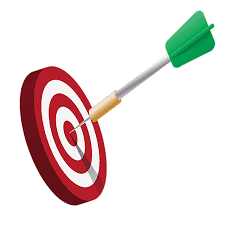Five ways to form a good habit that sticks
Curated from: theguardian.com
Ideas, facts & insights covering these topics:
5 ideas
·3.55K reads
9
Explore the World's Best Ideas
Join today and uncover 100+ curated journeys from 50+ topics. Unlock access to our mobile app with extensive features.
Identify a cue
Forming a habit is trying to form a cue-behaviour link in your memory, meaning you perform the behaviour without intentionally having to make yourself do it.
Cues can be internal or external (for example, feeling hungry or making a cup of tea) and are most effective when encountered every day, to minimize daily planning and willpower.
524
871 reads
Be specific
Narrow down what you want to do. You need to have a specific plan to work out exactly when and how you’re going to do that.
A behaviour is more likely to become habitual if it’s something you enjoy or find rewarding.
443
630 reads
Think about who you are
We are more likely to create a habit when it connects to our sense of identity.
Some habits are representations of certain important goals or values. If you manage to link certain behaviours to your sense of identity, it might help to establish those habits.
449
634 reads
Choose your moment
Make use of what we called ‘habit discontinuities': moments when people go through life-course changes, such as moving house, starting a family or a relationship, divorce, retirement or organization changes.
These kinds of events disrupt old habits and allow you to create new ones.
377
599 reads
Don’t give up
The widespread assertion that forming a habit takes 21 days is not true. Forming a new habit takes on average 66 days, with some people taking as much as 254 days (and some only 18).
And don’t despair if you miss a day. Just don't make a habit out of it.
575
825 reads
IDEAS CURATED BY
David Hendricks's ideas are part of this journey:
Learn more about personaldevelopment with this collection
How to use storytelling to influence and persuade
How to create a compelling narrative
How to structure your story for maximum impact
Related collections
Similar ideas
Read & Learn
20x Faster
without
deepstash
with
deepstash
with
deepstash
Personalized microlearning
—
100+ Learning Journeys
—
Access to 200,000+ ideas
—
Access to the mobile app
—
Unlimited idea saving
—
—
Unlimited history
—
—
Unlimited listening to ideas
—
—
Downloading & offline access
—
—
Supercharge your mind with one idea per day
Enter your email and spend 1 minute every day to learn something new.
I agree to receive email updates




